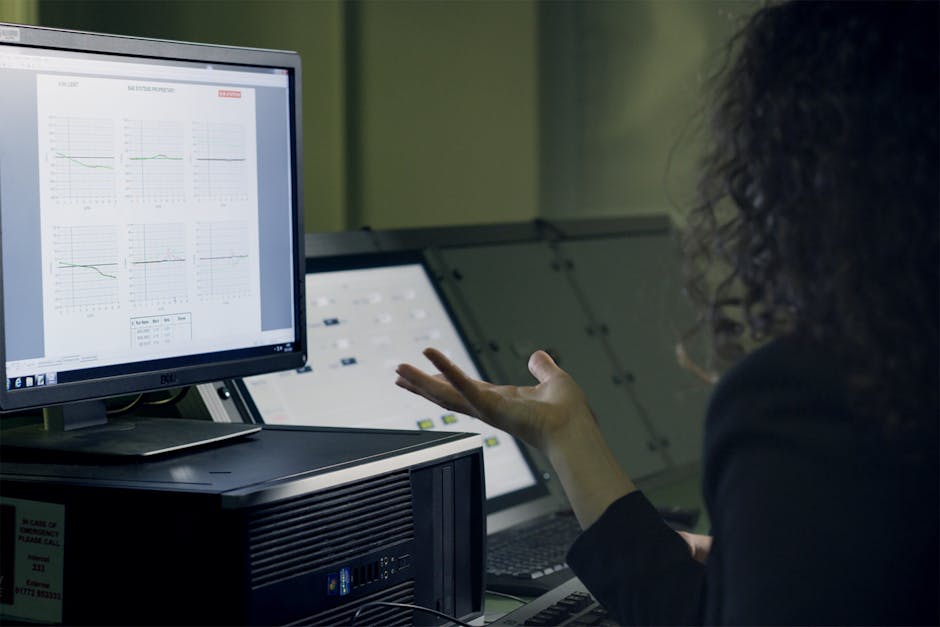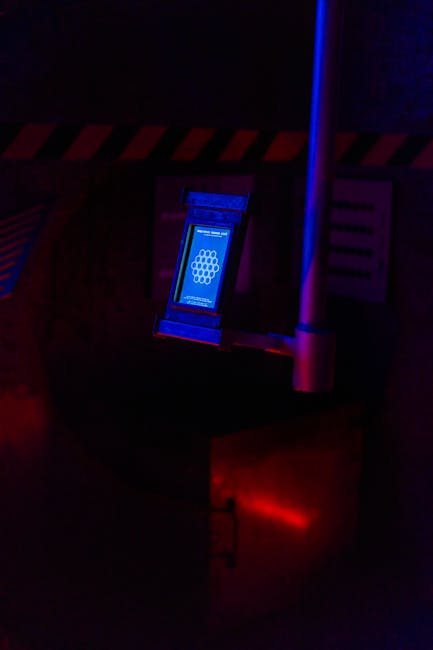Unlock encrypted content
Please enter your SSCE key to initiate on-the-fly decryption.
Decryption key: (Click cancel if you don't have the key)
Copied link to clipboard.
This feature is unavailable for free accounts. Upgrade now and enjoy all Premium benefits.
Go Premium!
This feature is unavailable for free accounts. Upgrade now and enjoy all Premium benefits.
Go Premium!
Please open this page in browser ( Google Chrome or Safari ) to use this feature.
Open In Browser
Streamlined File Sharing Workflows: The Future of Data Storage and Transfer
Random related video for this blog.
Copied share link to clipboard.
Traditional methods of file transfer, such as email attachments or physical storage devices, are becoming increasingly outdated and cumbersome. To meet the demands of the modern era, innovative technologies and solutions have emerged to streamline file sharing workflows, revolutionizing the way we store, transfer, and access our data. This article explores the latest advancements in file sharing technologies, including Li-Fi (Light Fidelity), human-machine interface, cloud storage benefits, secure file sharing, quantum internet, and blockchain technology.
Li-Fi (Light Fidelity): The Future of Wireless Data Transfer
As the demand for faster and more reliable wireless communication grows, Li-Fi has emerged as a groundbreaking technology that has the potential to revolutionize the way we transfer data. Li-Fi, which stands for Light Fidelity, is a wireless communication technology that uses visible light to transmit data. By modulating the intensity of light emitted by LED bulbs, Li-Fi can achieve data transfer rates that are significantly faster than traditional Wi-Fi. This technology has the potential to provide seamless and high-speed data transfer in environments where Wi-Fi signals may be unreliable or congested. One of the key advantages of Li-Fi is its ability to offer secure and interference-free data transfer. Unlike Wi-Fi, which uses radio waves that can be intercepted and hacked, Li-Fi relies on light signals that can be contained within a specific area. This makes Li-Fi an ideal solution for scenarios where data security is of utmost importance, such as in healthcare facilities or government organizations. Furthermore, Li-Fi can also be used in environments where radio waves may interfere with sensitive equipment, such as in aircraft or hospitals.Human-Machine Interface: Enhancing File Sharing Workflows
In the era of digital transformation, the human-machine interface (HMI) has become an integral part of file sharing workflows. HMI refers to the interaction between humans and machines, where users cancontrol and communicate with machines through intuitive and user-friendly interfaces. With the advancement of technologies such as voice recognition, gesture control, and augmented reality, file sharing workflows have become more intuitive and efficient. For example, voice recognition technology allows users to control file sharing processes using voice commands, eliminating the need for manual input. This can be particularly useful in scenarios where users have limited mobility, such as when driving or operating machinery. Similarly, gesture control technology enables users to interact with file sharing systems by simply waving their hands or fingers, providing a more natural and immersive user experience. Augmented reality can also enhance file sharing workflows by overlaying digital information onto the physical world, allowing users to visualize and interact with files in a more intuitive and efficient manner.
Cloud Storage Benefits: The Future of Data Storage
Cloud storage has revolutionized the way we store and access our data. With the advent of cloud computing, users can now store their files and data on remote servers, accessible from any device with an internet connection. This eliminates the need for physical storage devices and provides numerous benefits for individuals and businesses alike. One of the key advantages of cloud storage is its scalability. Unlike traditional storage methods, where users are limited by the capacity of their physical devices, cloud storage allows users to scale their storage needs based on demand. This is particularly beneficial for businesses that experience fluctuating data storage requirements, as they can easily expand or reduce their storage capacity without the need for additional hardware. Another major advantage of cloud storage is its accessibility. With cloud storage, users can access their files from anywhere in the world, as long as they have an internet connection. This enables remote collaboration and file sharing, making it easier for teams to work together on projects regardless of their physical location. Additionally, cloud storage also provides data redundancy and backup capabilities, ensuring that files are safe and recoverable in the event of hardware failure or data loss.Secure File Sharing: Protecting Your Data
In an era where data breaches and cyber threats are on the rise, secure file sharing has become a top priority for individuals and businesses. Traditional file sharing methods, such as email attachments or unencrypted file transfers, can leave sensitive data vulnerable to interception and unauthorized access. To address these concerns, innovative solutions have emerged to ensure secure file sharing workflows. One such solution is FileDrop, a file sharing feature offered by FileLu cloud storage. FileDrop allows users to send files directly to a designated folder in their cloud storage account, eliminating the need for email attachments or third-party file sharing services. This not only streamlines the file sharing process but also provides an added layer of security, as files are stored in an encrypted cloud environment. Additionally, FileLu cloud storage offers encryption file sharing capabilities, ensuring that files are protected during transit and at rest. This means that even if files are intercepted during the transfer process, they remain encrypted and unreadable to unauthorized parties. With end-to-end encryption, users can have peace of mind knowing that their sensitive data is secure and protected.Quantum Internet and Blockchain Technology: The Future of File Sharing
As technology continues to advance, the future of file sharing holds exciting possibilities with the emergence of quantum internet and blockchain technology. Quantum internet, also known as quantum communication, leverages the principles of quantum mechanics to enable ultra-secure and high-speed data transfer. Unlike traditional internet protocols, which rely on classical bits to transmit information, quantum internet uses qubits, which can exist in multiple states simultaneously. This allows for the transmission of vast amounts of data at speeds that are unimaginable with current technologies. Blockchain technology, on the other hand, has gained significant attention for its potential application in file sharing workflows. Blockchain is a decentralized and transparent ledger technology that enables secure and tamper-proof transactions. By leveraging cryptographic algorithms and distributed consensus mechanisms, blockchain can provide a secure and trustworthy platform for file sharing. This technology has the potential to eliminate the need for intermediaries in file sharing workflows, reducing costs and improving efficiency. In conclusion, the future of file sharing workflows is filled with innovation and possibilities. Technologies such as Li-Fi, human-machine interface, cloud storage, secure file sharing, quantum internet, and blockchain are reshaping the way we store, transfer, and access our data. By embracing these advancements, individuals and businesses can streamline their file sharing processes, enhance data security, and unlock new opportunities for collaboration and productivity. With FileLu cloud storage offering streamlined file sharing workflows and secure encryption capabilities, users can experience the benefits of these technologies firsthand. Embrace the future of file sharing and unlock the full potential of your data.Frequently Asked Questions (FAQs)
Q: How does Li-Fi work? A:
Li-Fi works by modulating the intensity of light emitted by LED bulbs to transmit data. It relies on visible light signals to achieve high-speed data transfer, making it faster and more secure than traditional Wi-Fi.
Q: What are the benefits of cloud storage? A:
Cloud storage offers scalability, accessibility, and data redundancy. Users can easily scale their storage needs, access their files from anywhere, and ensure their data is safe and recoverable.
Q: How does blockchain technology enhance file sharing workflows? A:
Blockchain technology provides a secure and transparent platform for file sharing. It eliminates the need for intermediaries, reduces costs, and ensures tamper-proof transactions.
Case Studies 1. Company XYZ: How FileLu cloud storage streamlined their file sharing workflows and improved data security. 2. Healthcare Facility A: How Li-Fi technology enhanced secure data transfer in a sensitive environment. 3. Startup B: How blockchain technology revolutionized their file sharing processes and reduced costs. For more information on streamlined file sharing workflows and secure cloud storage, visit FileLu.
By Amelia Isabella
Email: [email protected]
Related
The Future of Data Storage: Real-Time Collaboration, Multi-Device Access, and...
June 8, 2023
Read More
The Future of Technology: Genetic Engineering, Neural Implants, and Real-Time...
June 9, 2023
Read More
The Future of File Management: Emerging Technologies and Innovative Solutions.
June 9, 2023
Read More
Scalable Cloud Storage Architecture for Biotechnology: Efficient and Secure Data...
June 9, 2023
Read More
Cutting-Edge Innovations for Seamless File Collaboration and Space Exploration.
June 9, 2023
Read More
Popular
Exploring the Benefits of Cloud Storage and Innovative Technologies in...
November 26, 2025
Read More
The Future of Digital Transformation: Exploring Smart Homes, Efficient File...
November 30, 2025
Read More
Latest
The Future of Digital Transformation: Exploring Smart Homes, Efficient File...
November 30, 2025
Read More
Exploring the Benefits of Cloud Storage and Innovative Technologies in...
November 26, 2025
Read More
The Future of Technology: Exploring Biohacking, Space Tourism, and Digital...
November 23, 2025
Read More
The Future of File Sharing: Streamlined Workflows for Photographers and...
November 19, 2025
Read More
Exploring the Intersection of Technology: From Cybersecurity to Augmented Reality...
November 16, 2025
Read More
The Future of File Management: Embracing Edge Computing and Efficient...
November 12, 2025
Read More
The Future of File Sharing: Exploring User-Friendly Solutions and Data...
November 5, 2025
Read More
The Future of Cloud Storage: How FileLu Empowers Creative Professionals...
November 2, 2025
Read More
The Future of Autonomous Technologies: Innovations in Robotics, File Sharing,...
October 29, 2025
Read More
Emerging Technologies Revolutionizing File Management: From Li-Fi to Robust Collaboration...
October 26, 2025
Read More
Emerging Technologies: Exploring the Impact of File Access Auditing, Genetic...
October 19, 2025
Read More
The Future of Data Storage: Exploring Advanced Encryption, Mobile Integration,...
October 5, 2025
Read More
Exploring the Future of Data Management: Security, Efficiency, and Cognitive...
September 28, 2025
Read More
Revolutionizing Data Management: Innovations in Storage, Security, and Sustainable Technology.
September 24, 2025
Read More





















